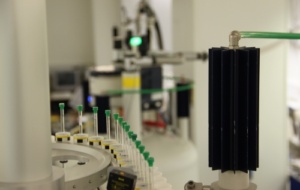Cancer blood test
 Professor Nicola R. Sibson, Supernumerary Fellow, has recently had a paper published in Clinical Cancer Research describing a new minimally invasive and inexpensive blood test that can identify cancer in patients with non-specific symptoms.
Professor Nicola R. Sibson, Supernumerary Fellow, has recently had a paper published in Clinical Cancer Research describing a new minimally invasive and inexpensive blood test that can identify cancer in patients with non-specific symptoms.
This is the first blood-based test that not only detects cancer in this population of hard-to-diagnose patients but also identifies whether the cancer has spread to secondary sites. The study analysed samples from 300 patients with non-specific but concerning symptoms of cancer, including fatigue and weight loss. The researchers then examined whether the test could distinguish patients with a range of solid tumours from those without cancer. Cancer was correctly detected in 19 out of every 20 patients. Metastatic disease was identified with an overall accuracy of 94%.
This test may help clinicians detect cancer and assess cancer stages more easily in the future. This test uses a technique called NMR metabolomics, unlike most blood-based tests for cancer which detect genetic material from tumours. NMR metabolomics uses high magnetic fields and radio waves to profile levels of natural chemicals (metabolites) in the blood.
The majority of Professor Nicola Sibson’s research focuses on the application of MRI and other imaging modalities to the investigation of brain disease. Her main focus is secondary cancer (metastasis) to the brain, which is a major clinical problem and our work has a strong translational emphasis. Her interests lie in two primary areas – firstly, understanding the role of inflammation in tumour progression and, secondly, developing new imaging biomarkers for early diagnosis and treatment stratification
You can read the article here. Nicola wrote in May 2020 about how she adapted her way of working during the first COVID-19 lockdown. You can also watch her talk about brain tumours in this National Cancer Research Institute video.
Published: 6 April 2022
